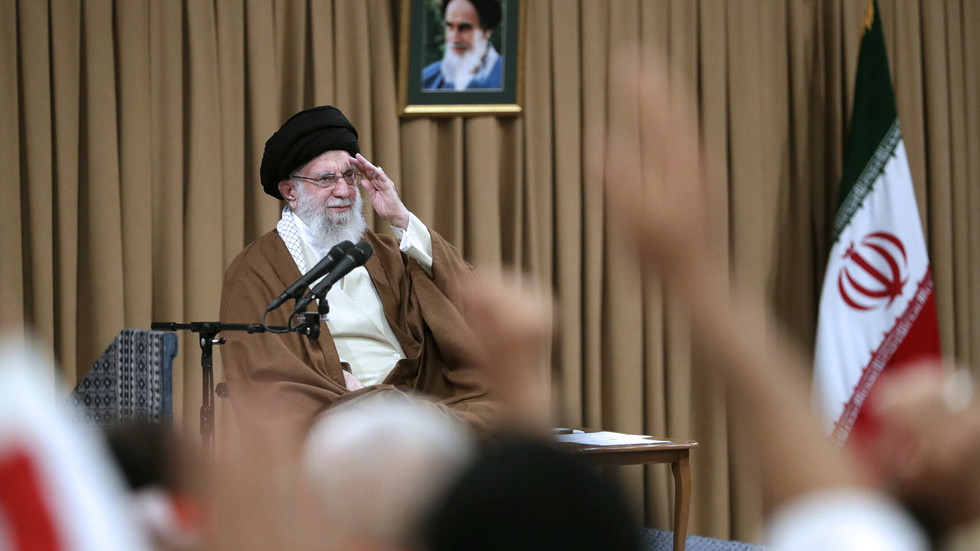Iran Calls for Harsh Punishment: The Implications of Demanding the Death Penalty for Israeli Leaders


In a bold and controversial move, Iran has publicly demanded the death penalty for Israeli leaders, igniting a debate over international law and human rights. This demand raises questions about the geopolitical ramifications and the potential for escalating tensions in the region.
Iran’s Call for Capital Punishment of Israeli Leaders: Analyzing the Geopolitical and Legal Implications
In a recent and provocative development, Iran’s Supreme Leader, Ayatollah Ali Khamenei, has publicly called for the death penalty for Israeli leaders, including Prime Minister Benjamin Netanyahu. This declaration follows the International Criminal Court’s (ICC) issuance of arrest warrants for Netanyahu and other Israeli officials, accusing them of war crimes in Gaza. Khamenei’s statement has intensified debates over international law, human rights, and the potential escalation of tensions in the Middle East.
Context of the ICC’s Arrest Warrants
The ICC’s decision to issue arrest warrants for Israeli leaders stems from allegations of war crimes committed during military operations in Gaza. The court’s charges include acts such as murder, persecution, and the use of starvation as a weapon against the civilian population. Israel has condemned the ICC’s actions, labeling them as “shameful and absurd,” and maintains that its military operations are conducted in self-defense against terrorist organizations like Hamas.
Iran’s Response and Khamenei’s Statement
Reacting to the ICC’s arrest warrants, Ayatollah Khamenei criticized the measures as insufficient, advocating instead for capital punishment. He stated, “They issued an arrest warrant, that’s not enough… Death sentences must be issued for these criminal leaders.” This stance aligns with Iran’s longstanding opposition to Israel and its support for groups opposing Israeli policies.
Geopolitical Ramifications
Khamenei’s call for the death penalty against Israeli leaders has several significant geopolitical implications:
- Escalation of Hostilities: Such rhetoric may exacerbate existing tensions between Iran and Israel, potentially leading to increased military confrontations or proxy conflicts in the region.
- Impact on Diplomatic Relations: Iran’s stance could influence its diplomatic relations with other countries, particularly those allied with Israel or involved in Middle Eastern peace processes.
- Regional Stability: The call for capital punishment may destabilize the region further, affecting neighboring countries and international efforts to maintain peace and security.
International Law and Human Rights Considerations
The demand for the death penalty raises critical questions regarding international law and human rights:
- Legitimacy of Extrajudicial Punishments: Advocating for the execution of foreign leaders without due process challenges the principles of international law and the sovereignty of nations.
- Human Rights Violations: Calls for capital punishment, especially without a fair trial, contravene international human rights standards that protect individuals from arbitrary deprivation of life.
- Precedent for International Relations: Such declarations could set a dangerous precedent, encouraging other states to make similar extrajudicial demands, undermining global diplomatic norms.
Broader Implications for the Middle East
The intensification of rhetoric between Iran and Israel has broader implications for the Middle East:
- Influence on Proxy Conflicts: Iran’s support for groups opposing Israel, such as Hezbollah and Hamas, may lead to increased proxy conflicts, affecting countries like Lebanon and Syria.
- Impact on Nuclear Negotiations: Heightened tensions could complicate ongoing negotiations regarding Iran’s nuclear program, influencing international sanctions and diplomatic engagements.
- Effect on Regional Alliances: The situation may prompt regional actors to reassess their alliances and strategies, potentially leading to shifts in power dynamics within the Middle East.
Conclusion
Ayatollah Khamenei’s call for the death penalty for Israeli leaders marks a significant escalation in Iran’s rhetoric against Israel. This development not only heightens bilateral tensions but also poses challenges to international law and human rights principles. The international community faces the complex task of addressing these issues while striving to maintain regional stability and uphold the rule of law.
For further insights into the complexities of Middle Eastern geopolitics, consider exploring our in-depth analysis on regional power dynamics.
Additionally, the Update My News
Recent Posts
Inside the Controversy: Jail Employee’s Role in Inmate Escape Sparks Debate
Explore the jail escape controversy in New Orleans and the ethical dilemmas faced by correctional…
A Shocking Account: Eyewitness Recalls the Calm Terror of the DC Jewish Museum Shooting
Eyewitness account reveals the chilling details of the DC Jewish Museum terrorist attack.
Investigation Underway Following Small Plane Crash in San Diego Neighborhood
A plane crash in San Diego sparks an investigation into aviation safety and community impact.
Behind Bars: The Arrest of a Maintenance Worker Linked to New Orleans Jail Break
Discover the shocking arrest of a maintenance worker in the New Orleans jail escape case.
Florida Man’s Shocking Arrest: A Bizarre Cow Shooting Incident
Florida man arrested in a bizarre cow shooting incident, raising questions on animal rights and…
Indiana’s Controversial Execution: The 2000 Murder Case That Shook a Community
Execution in Indiana revives debates on capital punishment following the 2000 police officer murder case.